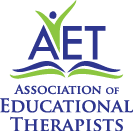
Marci Peterson, MEd, BCET
Board Certified Educational Therapist (AET)
Structured Literacy/Dyslexia Specialist (IDA)
I offer instruction, assessment, and consultation for language-based learning disabilities. Dyslexia is by far the most common language-based disability; others include comprehension, fluency, and language learning. Language-based disabilities are thought to affect up to twenty percent of our population, can be hard to identify in children and adults, and often go undiagnosed. As an educational therapist, I am trained to consider psycho-educational and socio-emotional aspects of life-long learning.
Board Certified Educational Therapist (AET)
Structured Literacy/Dyslexia Specialist (IDA)
I offer instruction, assessment, and consultation for language-based learning disabilities. Dyslexia is by far the most common language-based disability; others include comprehension, fluency, and language learning. Language-based disabilities are thought to affect up to twenty percent of our population, can be hard to identify in children and adults, and often go undiagnosed. As an educational therapist, I am trained to consider psycho-educational and socio-emotional aspects of life-long learning.
“If a child can't learn the way we teach, maybe we should teach the way they learn.” Ignacio Estrada
Treatment
Personalized intervention plans consider my clients' cognitive, academic, and social-emotional profiles, promoting individual strengths. My approaches to reading and writing instruction are supported by years of research on the science of reading, using structured literacy approaches such as Orton-Gilligham. There is no quick fix to treating dyslexia and other language-based learning disabilities. Most of my clients stay with me for two to three years, meeting twice a week. I work with students 8 years and older and adults who also have ADHD or are twice-exceptional (2e).
In addition to instruction, sessions incorporate non-academic skills such as critical thinking, organization, attention, strategies to enhance working, and self-advocacy. The goal is that the student will take ownership of his or her education.
When situations allow, I prefer to work with clients in person. My clients live in Sacramento and South Placer counties. I can offer online sessions when meeting in person is not feasible.
In addition to instruction, sessions incorporate non-academic skills such as critical thinking, organization, attention, strategies to enhance working, and self-advocacy. The goal is that the student will take ownership of his or her education.
When situations allow, I prefer to work with clients in person. My clients live in Sacramento and South Placer counties. I can offer online sessions when meeting in person is not feasible.
Assessments
As a Board Certified Educational Therapist, I utilize a range of formal and informal educational assessments for ages four to adult. There is a direct link between assessments and intervention; outcomes direct what instructional approach or classroom accommodations a person succeed in learning. My direct experience working with children and adults with dyslexia provides expertise in evaluations or screenings for dyslexia: a less intrusive, economical way to identify dyslexia.
Emerging readers benefit from early identification. Children who test below average in phonemic awareness, rapid naming, and auditory memory skills are highly at risk for a reading disability. The National Institutes of Health (NIH) state that 95 percent of poor readers can be brought up to grade-level if they receive effective help early. Early screening is intended for ages four to six years old or before the second semester of first grade.
Older readers ages seven to adult may find reading difficult to master or suddenly challenging to comprehend grade-level texts. Decoding takes too much effort, and most likely, they are guessing at unknown words. Or they can read the words; however, they cannot break apart the text for meaning. Inefficient readers need help to keep up with increasing academic demands. Identification followed by effective reading instruction can be life-changing!
Emerging readers benefit from early identification. Children who test below average in phonemic awareness, rapid naming, and auditory memory skills are highly at risk for a reading disability. The National Institutes of Health (NIH) state that 95 percent of poor readers can be brought up to grade-level if they receive effective help early. Early screening is intended for ages four to six years old or before the second semester of first grade.
Older readers ages seven to adult may find reading difficult to master or suddenly challenging to comprehend grade-level texts. Decoding takes too much effort, and most likely, they are guessing at unknown words. Or they can read the words; however, they cannot break apart the text for meaning. Inefficient readers need help to keep up with increasing academic demands. Identification followed by effective reading instruction can be life-changing!
Consultations
Many of the students I work with require a different approach to learning across subject areas. Individual education plans can be hard to interpret. I can offer consulting appointments to review IEPs and analyze school psychologist reports with your child's best interest in mind. For those seeking a new direction, I can offer homeschool advice to individual and family curriculum or alternative academic choices.
Adults might seek guidance in how to manage their dyslexia or need to remediate skills. I can help address school and work challenges caused by having dyslexia. Please visit my webpage: Adult Consultation and Services
Consultations can be done in person or over Zoom.
Adults might seek guidance in how to manage their dyslexia or need to remediate skills. I can help address school and work challenges caused by having dyslexia. Please visit my webpage: Adult Consultation and Services
Consultations can be done in person or over Zoom.
“Life is full of challenges. How you handle these challenges is what builds character. Never be afraid to be who you are.”
– Erin Brockovich, activist and dyslexic
– Erin Brockovich, activist and dyslexic
